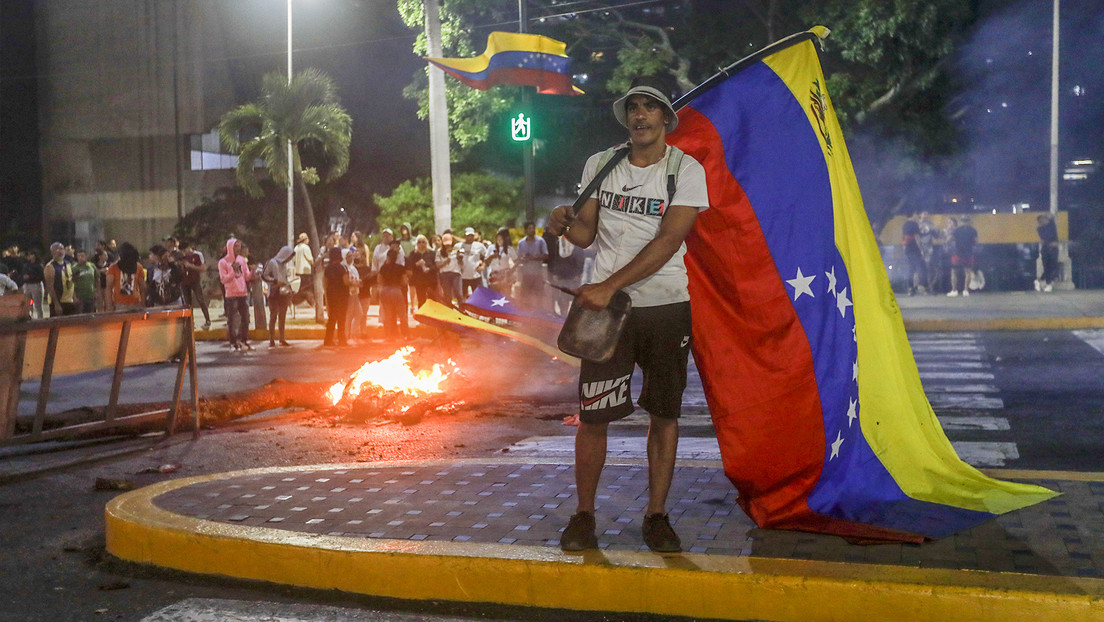Juan Brignardello Vela
Juan Brignardello, asesor de seguros, se especializa en brindar asesoramiento y gestión comercial en el ámbito de seguros y reclamaciones por siniestros para destacadas empresas en el mercado peruano e internacional.




The spokesperson for the Ministry of Foreign Affairs of Ukraine, Georgi Tiji, has made a significant statement regarding the recent presidential elections in Venezuela, where Nicolás Maduro was re-elected. Through his account on the social media platform X, Tiji emphasized the importance of counting every vote transparently, highlighting that Venezuelan citizens "deserve nothing less." This comment comes in the context of great political and social tension in the South American country, where the radical opposition has declared its intention to disregard the results of the National Electoral Council. Tiji's statement reflects a critical stance towards electoral processes in countries where a climate of distrust and accusations of corruption are predominant. In his message, the Ukrainian spokesperson stressed that free and fair elections are fundamental for the will of the people to be respected. This aligns with the growing international concern regarding the legitimacy of elections in Venezuela, a recurring topic on the agenda of human rights organizations and various nations closely monitoring the situation in the Latin American country. This context is intensified by Nicolás Maduro's claims, who has denounced a plan by the extremist opposition to destabilize his government. He asserts that this group has organized a series of violent protests in response to the electoral results, accusing the U.S. government of being the instigator behind these movements. Maduro has labeled these actions as a "violent, fascist, and criminal counter-revolution," suggesting an atmosphere of confrontation that could escalate in the coming days. The Venezuelan leader has also provided details about the arrests related to these protests, arguing that many of those arrested have criminal records and, for the most part, had recently returned from the United States. These claims have been viewed by many as an attempt to delegitimize the opposition and distract attention from criticism of the electoral process, adding another layer of complexity to the situation. The international community is watching these events closely, and Ukraine's response is representative of a broader approach by several governments seeking to promote democracy and transparency in electoral processes. Tiji's emphasis on the need for votes to be counted clearly aligns with a global call for accountability in fragile democracies. On the other hand, Maduro's re-election occurs within a broader context of political crisis in the country, where polarization has reached extreme levels. The opposition, which has struggled to gain ground in a system that many consider authoritarian, sees the current situation as an opportunity to mobilize its supporters and renew calls for protest. However, the path toward a peaceful and democratic solution appears fraught with obstacles. The situation in Venezuela also raises questions about the future of the region and the role of international actors. Ukraine's stance serves as a reminder that struggles for democracy are not confined to a single continent and that countries undergoing similar crises may find common ground in their experiences. Meanwhile, the legitimacy of Nicolás Maduro's government remains a topic of debate. The international community, including organizations like the OAS and the European Union, has expressed concern over the lack of transparency in electoral processes in Venezuela, reinforcing the need for sincere dialogue between the conflicting parties. In conclusion, the situation in Venezuela remains volatile and complex, with both internal and external actors influencing the outcome of this crisis. Georgi Tiji's words, while specific to the Venezuelan case, resonate with a broader concern for the defense of democracy and the necessity for citizens' rights to freely choose their leaders to be respected. As the country navigates through this tumultuous period, the call for transparency and accountability becomes a fundamental echo in the pursuit of a more stable and democratic future.
Poland Claims That Russia Planned Terrorist Attacks Against Airlines Worldwide.

Lavrov Criticizes The U.S. For Inciting Attacks On EU Energy And TurkStream.

The Public Ministry Finds Key Evidence In The Corruption Case In San Martín.




